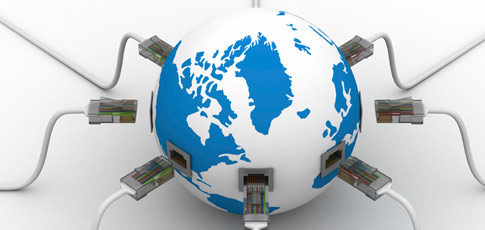A regular day in the next century
by Hans Vesliberg
"So what do you do?" It's a question that most of us have asked - or
been asked - at some point. We often use it as an easy way to start a
conversation and to establish some common ground.
|

Hans Vestborg (ecodetech.
files.wordpress.com) |
But what if people thought our jobs seemed incomprehensible? I think
that's exactly what would happen if we could talk to somebody from the
early 19th Century and try to explain what working life looks like in
2016. In the same way, we'd probably struggle to understand a regular
day in the 22nd Century.
This quick thought experiment shows just how much has changed in our
economies and societies over the past 200 years - and indicates the
level of transformation that is still to come.
Twenty-six billion
The latest Ericsson Mobility Report shows that there are now over
seven billion mobile subscriptions globally, and that over 90 percent of
the world´s population will be covered by mobile broadband networks by
2021. As a direct result of technologies such as broadband, mobility and
cloud, value chains are being reshaped, business models digitalized and
previously unimaginable possibilities are created.
Information and communication technology (ICT) is, in short, enabling
a radically new era. While it took 100 years to connect one billion
places, only 25 years were required to connect five billion people.
Today, not only places and people are connected, but things too - in
fact, we forecast 26 billion connected devices in 2020.
The industrial age - where the competitive advantage of a company was
primarily built on scale, ownership and concentration - is being rapidly
replaced by the networked society, where people are using connectivity
as the starting point for new ways of innovating, collaborating and
socializing.
Future working lives
This explains why an online accommodation business that doesn't own a
single room now has a higher market valuation than any global hotel
chain. Digital transformation is happening across industries - in TV and
media, where our research has found that over 50 percent of consumers
now watch streamed on-demand video content at least once a day.
One frequently asked question is what all this means for our working
lives. It's true that many of today's jobs will probably be affected by
automated ICT processes at some point. But when we look again at our
thought-experiment with the 19th Century worker, it becomes clear that
that we will simply do different things, rather than nothing at all.
|

Pic courtesy: cloudtimes.org |
Such is the nature of transformation in any era - as technology
advances, economic productivity and employment always evolve too. This
is as true today as it was at the beginning of the industrial age, 200
years ago. There is also the additional consideration of multiplier
effects, whereby each new high-tech job in a metropolitan area may
actually create five additional jobs outside the high-tech industry.
Of course, other challenges remain. For example, how can the positive
possibilities of ICT be maximized? Which skills do people, businesses
and governments require? How can regulation support innovation while
protecting the rights of individuals?
Finding good answers to these questions needs a multi-stakeholder
dialogue - nobody can solve them alone. I firmly believe that when
companies, policymakers and civil society engage closely with each
other, we can develop effective, inclusive visions that bring the
benefits of ICT to all.
For policymakers, awareness levels of ICT's long-term potential could
be even higher. Commitment to national broadband plans and frameworks
for cross-ministry cooperation, can make a big difference, and should be
accelerated wherever possible. Regulatory environments should support
both the digitalization of established industries and the development of
emerging sectors. More can also be done to develop digital skillets -
both within governments and for citizens. By democratizing education and
bringing learning to all, ICT can help cultivate and empower talent for
the digital economy.
Disrupt yourselves
For companies, the priority is to disrupt yourself before others do
it for you. New technologies mean new rules and the winners will be
those companies who proactively integrate ICT into the very fabric of
their business. Ask yourself this - beyond simply making my processes
more efficient, how can technology transform my business model and
become a driving force for continual innovation, sustainability and
value creation?
And as individuals, it's essential that we embrace the
transformational potential of ICT and actively participate in the
possibilities it creates. This means taking responsibility for the
systems with which we are becoming increasingly intertwined.
The writer is the President and CEO of Ericsson. - World Economic
Forum
|

